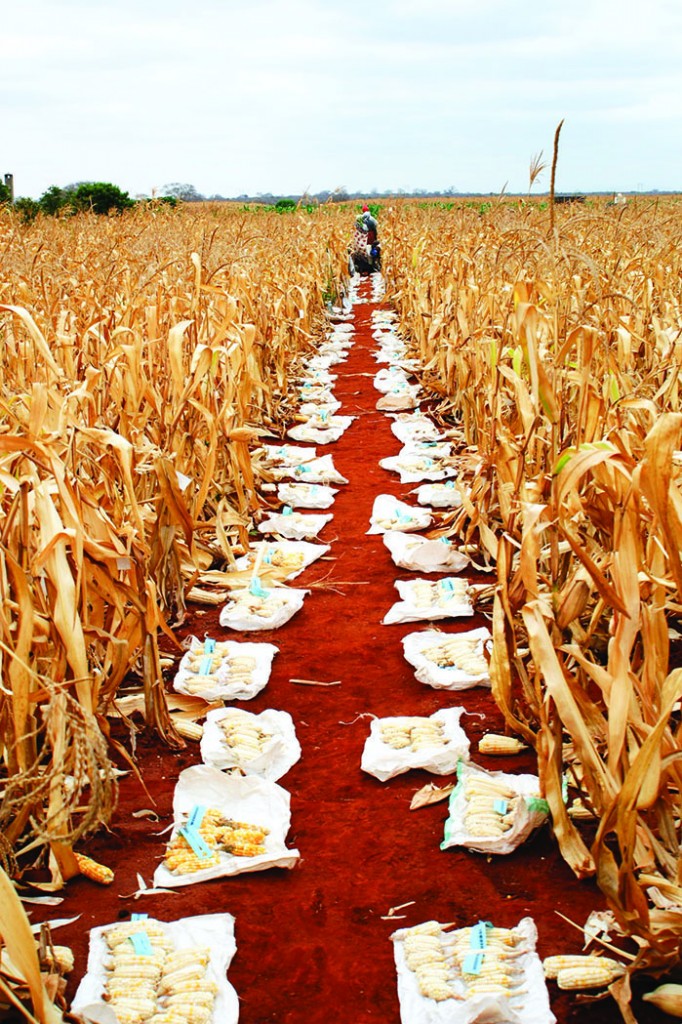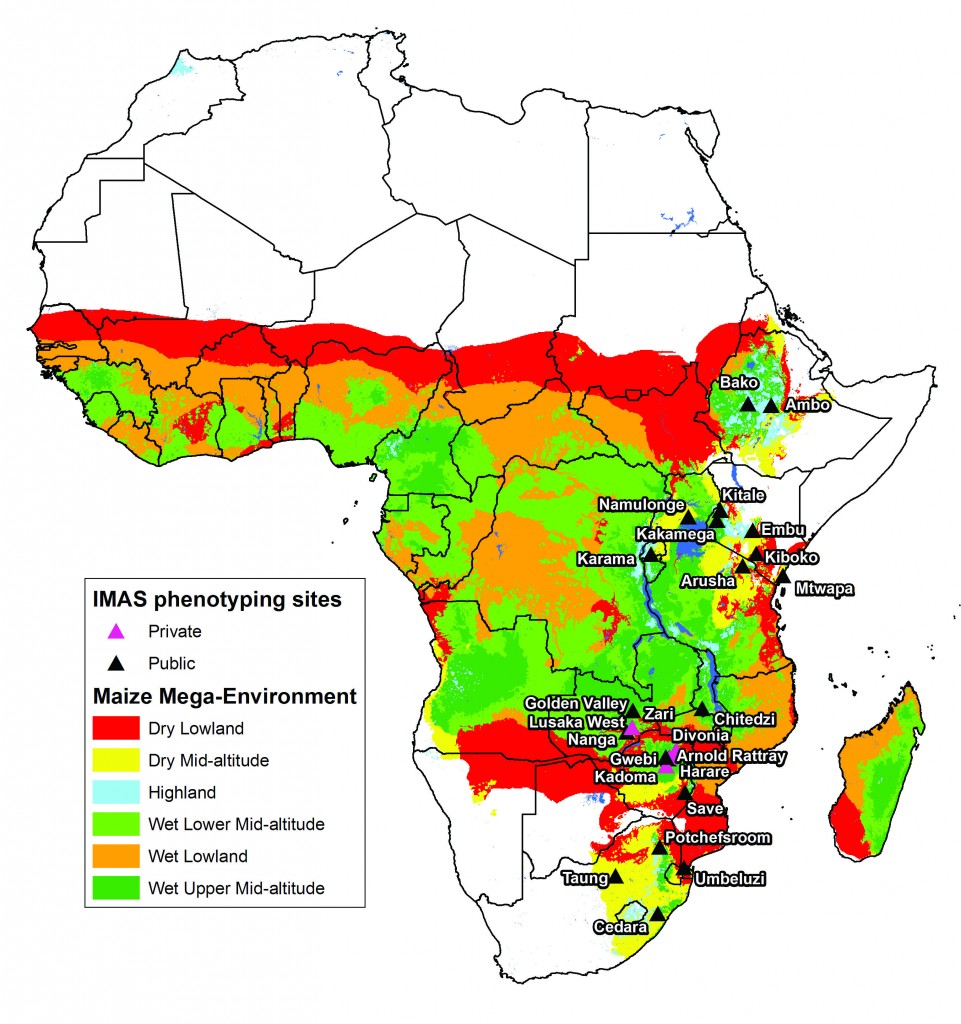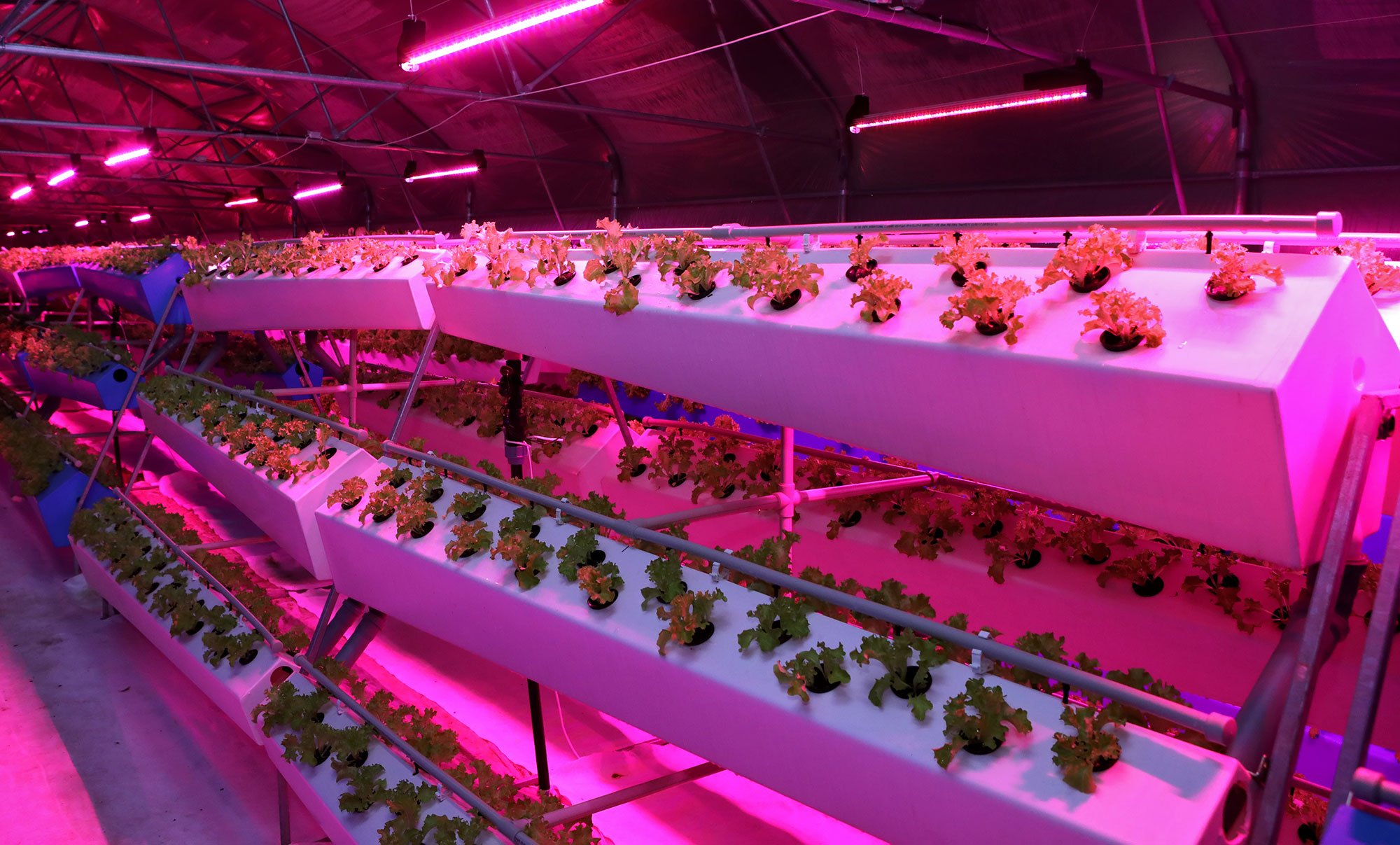Background: Soil nitrogen deficiency limits maize productivity in Sub-Saharan Africa (SSA), resulting in high levels of food insecurity and malnutrition. Examining the performance of maize tropical lines under low-N stress conditions is critical for advancing the food and nutrition agenda in SSA. Breeding methods based on molecular genetics can improve our understanding of the genetic processes regulating grain protein, oil, and starch content in nitrogen-deficient soils and be used to develop higher performing cultivars.

Methodology: The study employed Genome-wide association study (GWAS), quantitative trait loci (QTL) mapping and genomic selection (GS) techniques for dissecting the genetic architecture of maize grain quality traits (i.e, protein, starch, and oil content) under optimal and low-nitrogen stress conditions.
Genetic Materials: Improved Maize for African Soils (IMAS) mapping panel and four doubled-haploid maize genotypes.

The research introduced me to advanced molecular data management and analysis techniques utilized in plant breeding. It also provided me with connections to world-renowned centres, institutions, and scientists in the field of genetics.
Acknowledgements: Gratitude is extended to:
- The International Maize and Wheat Improvement Center (CIMMYT)
- The Cornell University Genotyping Facility and Prof. Ed Buckler’s group
- Research supervisors: Prof. Charles Spillane, Dr. Peter C. McKeown, Dr. Manje Gowda, Dr. Jill Cairns, Dr. K. V. Pixley and Dr. Bisnawath Das
- The Plant & AgriBiosciences Research Centre (Ryan Institute)
- The Spillane Genetics Research Lab
- Funding: Bill & Melinda Gates Foundation to CIMMYT and Irish Aid Fellowship to NN
